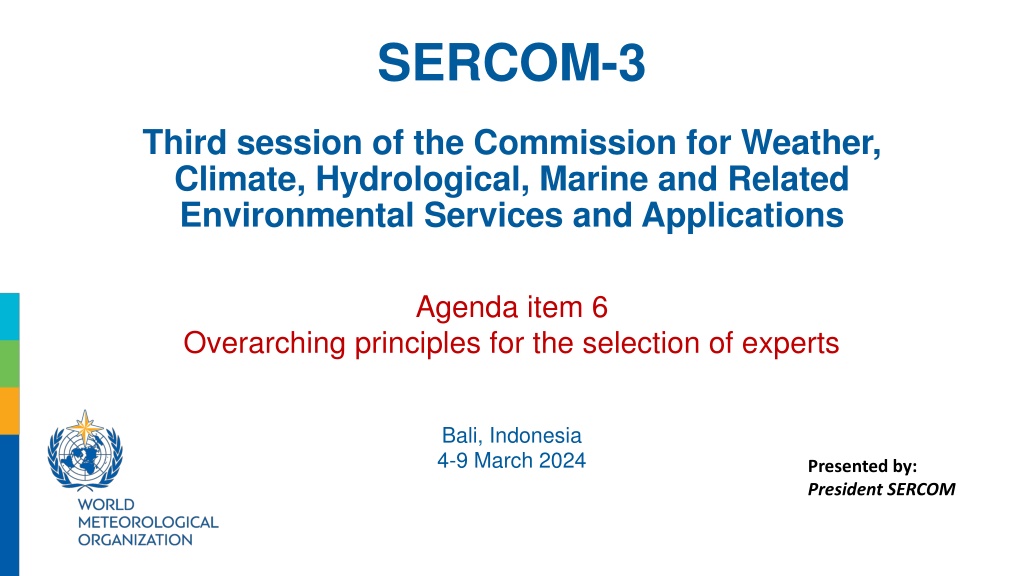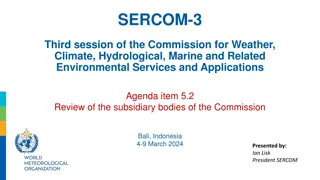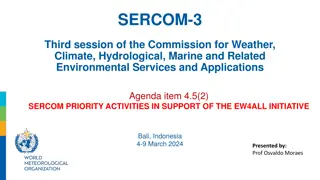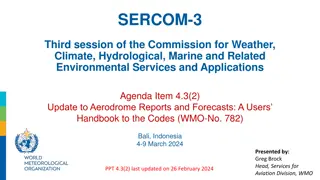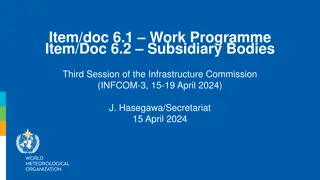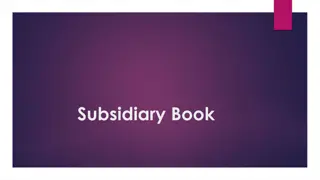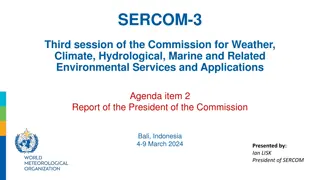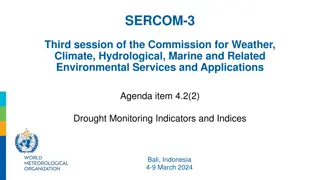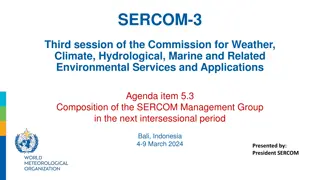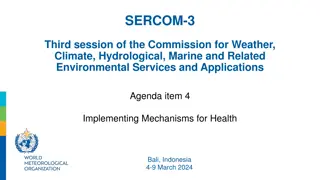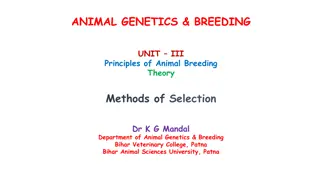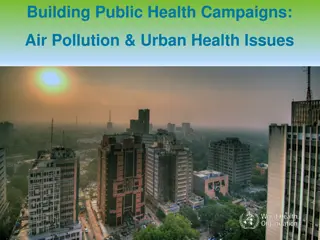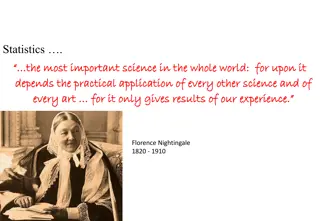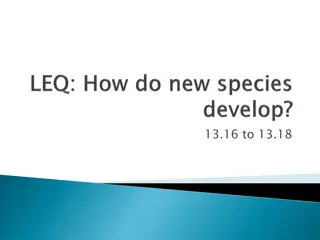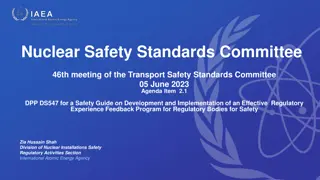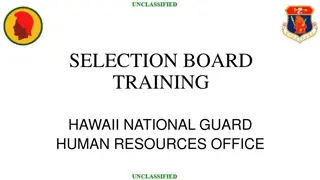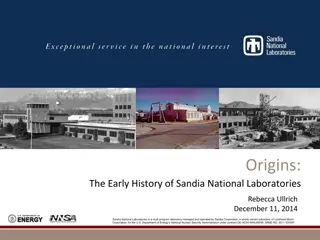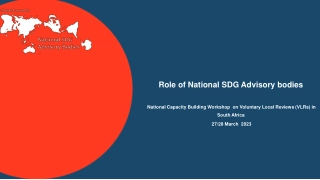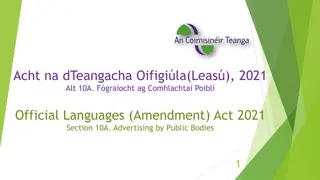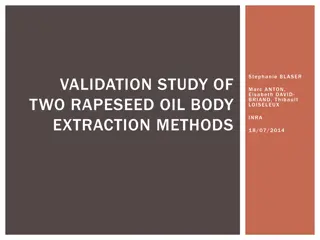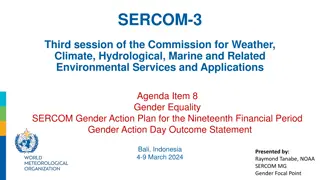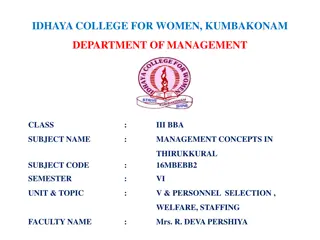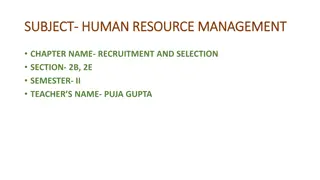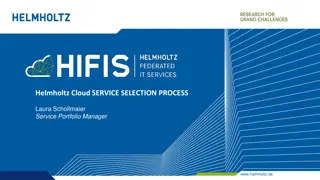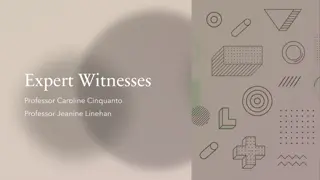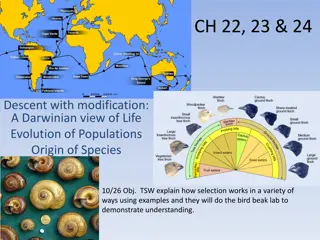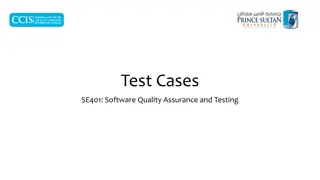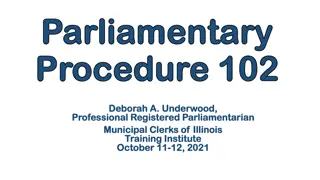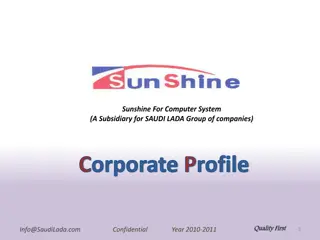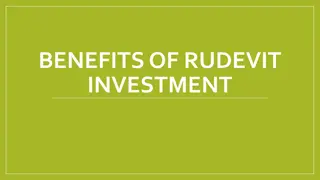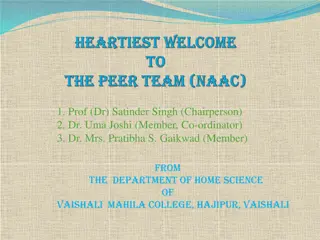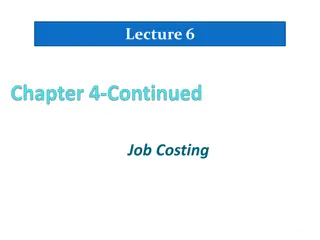Overarching Principles for Expert Selection in SERCOM Subsidiary Bodies
The document outlines the overarching principles for selecting experts in the Commission for Weather, Climate, Hydrological, Marine, and Related Environmental Services and Applications (SERCOM) subsidiary bodies. It covers the leadership positions, balanced composition criteria, gender representation, regional diversity, and expert selection process guidelines. Emphasis is placed on including experts from various fields, developing countries, and females to ensure diversity and expertise in SERCOM's operations from 2024 to early 2028.
Download Presentation

Please find below an Image/Link to download the presentation.
The content on the website is provided AS IS for your information and personal use only. It may not be sold, licensed, or shared on other websites without obtaining consent from the author. Download presentation by click this link. If you encounter any issues during the download, it is possible that the publisher has removed the file from their server.
E N D
Presentation Transcript
SERCOM-3 Third session of the Commission for Weather, Climate, Hydrological, Marine and Related Environmental Services and Applications Agenda item 6 Overarching principles for the selection of experts Bali, Indonesia 4-9 March 2024 Presented by: President SERCOM
Overarching principles for SERCOM s Subsidiary Body Leadership Positions 1 2 President and Vice-Presidents should comprise: Leadership of subsidiary bodies of SERCOM shall comprise: 3 a) At least 1 representative from the fields of Weather, Climate & Hydrology*; a) For Standing Committees - 1 Chair, and 2 Vice-Chairs (leadership shall include at least 1 developing country expert* and at least 1 female); 4 b) At least 1 female; 5 b) For Study Groups - 2 co-chairs, or 1 chair and 1 vice-chair (if possible, to include at least 1 developing country expert* and/or at least 1 female); And shall: 6 a) Comprise at least one officer from a developing country*; c) Expert Teams - 2 co-chairs (if possible, to include at least 1 developing country expert* and/or at least 1 female); b) Not also hold a chair position in a subsidiary body*, except for Task Team or Advisory Groups established under the Management Group; d) Task Teams and Advisory Groups - 1 or 2 co-chairs (Generic composition balance principles apply); c) VPs should be from different regions*; Generic expert composition balance principles for all subsidiary bodies of SERCOM: Role of RAs to ensure regional balance a) b) c) d) Expertise in the relevant topic; Regional, national and developing country status; Gender - SERCOM 2024-27 target, at least 40% female; Experience (accounting for succession planning considerations).
Expert selection process for SERCOM subsidiary bodies Generic guidance: SERCOM overarching principles for expert representation balance should be followed; (Provisionally) selected experts (and leaders) should be encouraged to: i. Ensure to have their local management s and their PRs (or for non-WMO Member, Approving Agency s) agreement to continue or be selected as a subsidiary body expert for the period 2024 to early 2028 (SERCOM-5) based on the level of time commitment described in Annex IV of the Rules of Procedure for Technical Commissions and; ii. Ensure, by checking through the respective PRs Office (or for non-WMO Member, Approving Agency), that the WMO Expert Network nomination entries are consistent with what has been agreed to in (i).
Additional considerations For what concerns the regional composition balance principles for all subsidiary bodies, it has to be noted that this does not necessarily imply an equal distribution among the six Regions, but that similarly to the Executive Council composition, the ideal composition balance could correspond to the percentages listed below: RA EC seats % in EC # Members % of Members I 8/31 26 53/193 27 II 5/31 16 34/193 18 III 3/31 10 12/193 6 IV 4/31 13 22/193 11 V 3/31 10 22/193 11 VI 8/31 26 50/193 26
Thank you. wmo.int
